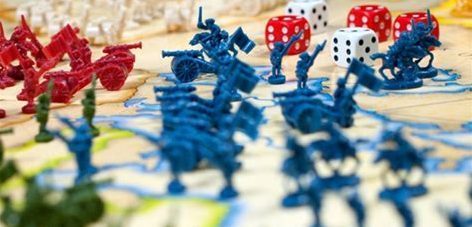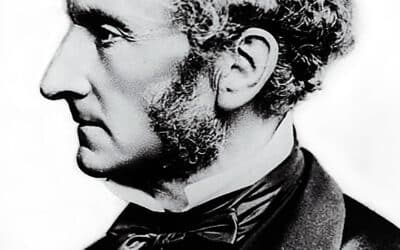We’ve crossed the monetary Rubicon. There is no going back to the way things were. With the creation of a series of Special Purpose Vehicles (SPV) the Treasury Dept. and the Federal Reserve have fundamentally altered the financial landscape of the United States.
We are no longer a country that tolerates the risk of capitalism. To be honest, we haven’t been that country for a very long time. Steadily over the course of my life (I was born in 1968 the year the London Gold Pool failed), the global monetary system has cut tie after tie to the discipline of the free market in money.
With the U.S. at the center of the system, it was inevitable that we would reach the point of no return once there was no other way to reflate the system.
And it has been in the service of arrogating the power of money creation, and by extension the power that confers to the printers, to a global oligarchy I’m fond of calling The Davos Crowd.
My last post was an open letter to these folks letting them know that no matter how much they try to scare us into accepting a world where they have total control over our lives their chances of success are limited because we can see them and what they are planning.
The response I’ve received from people to that post confirm my view on this. Few things I have written have generated the kind of passion I’ve seen from folks.
And this Davos Crowd is the most risk averse of any crowd there is. Because near unlimited power makes you both paranoid and stupid. Paranoid that the power will slip from your grasp and stupid because you believe yourself immune to the consequences of your actions.
They use that insane power of the printing press to erect walls around competition and ensure nothing but one-way trades where no matter what ‘risks’ they take, someone else pays the price for their failure.
Their failures are nearly complete today. Because when you divorce money creation from the discipline imposed by the proper pricing of risk you divorce the application of that money towards sustainable and productive activity.
These people were always monetary Marxists. And the Austrian economists of the last century accurately called them out on their methodological errors while ruthlessly applying their reason to predict exactly why it would all eventually fail.
Because mispricing risk by mucking with interest rates alters the structure of production to misallocate capital from where it is actually demanded in a free market for money to what they want to use it for: global governance, endless wars and the subjugation of humanity.
Money flows into projects which wouldn’t be funded otherwise and at the end of the business cycle reveals them to be uneconomic. This is why we’re staring at a world today that only needs 70-75 million barrels of oil per day versus the 100+ million we needed just last month.
This is why we’re staring at a world of endless strife and conflict and not one where the biggest thieves are brought to account for their actions but seeminingly rewarded for it.
And with each intervention to prop up asset prices, by keeping interest rates at or below zero, all that happens is the uneconomic businesses stay functioning far longer than they should have, ensuring that the next time the cycle turns against them, the needed intervention will be even bigger.
This is why every time there is a crisis the numbers get bigger, the responses more ludicrous and the effects on the real economy ever more brutal.
And guess who always bears the brunt of the collapse? Those that caused it with their profligacy and thievery? No.
You do. I do. And our children do.
When government creates a risk-free trade in one area of the economy it forces inordinate risk onto another area. It turns everyone into speculators and not builders of wealth. The money they print raises the demand for those commodities which they value while retarding the demand for the ones we value.
This is why the Quantity Theory of Money fails. It’s why the CPI and GDP are poor metrics to set in opposition to justify more money printing, more government intervention and bigger bailouts.
It only looks at the supply of money but ignores the demand for it. And right now, thanks to a biblical short position against the U.S. dollar demand for money is still insanely high.
It will allow them to ‘get away with this’ for another period of time.
Mises laid all of this out in The Theory of Money and Credit in 1912. The basics are all there in chapter one. And it’s why we’ve reached the end of the fiction of a debt-based monetary system here in the U.S.
But once the demand subsides, the money is still there. The latent inflation that doesn’t show up in the CPI is still there. There is no calling this money back in without deflating asset prices and causing the exact situation they are avoiding today.
We’ve reached the end of laying off risk onto a greater fool. There is no one else to sell the next round of debt to to finance the bailouts. So, now the Fed and the Treasury have merged, as Jim Bianco pointed out two weeks ago, to ensure the free flow of money completely unmoored from risk.
This is the Rubicon I said we crossed at the beginning of the article.
This allows the U.S. government to complete its transformation into an entity wholly indistinguishable at this level from China with state ownership of strategically and systemically important businesses.
From my latest piece at Money and Markets:
This, folks, is pure MMT — Modern Monetary Theory. The Fed is creating money out of thin air having bought the debt they never intend to sell from the Treasury so that it can buy whatever it wants and will have Blackrock (NYSE: BLK) be the fund manager, to make the whole thing quasi-legal.
The only functional difference between this and Lincoln’s Greenbacks of the Civil War year (1861-63) is the accounting fiction of the asset (U.S. Treasurys) on the Fed’s balance sheet. Functionally, there is zero difference.
And the funny part about this is that it was done by the so-called fiscally responsible Republican president. Now Trump is happy with his Federal Reserve Chairman, Jerome Powell. In order to save the stock market, the frackers, the municipalities, the 16 million people who have lost their jobs in the past three weeks (and possibly the stink bugs hounding my blueberry bushes), they will print whatever money is needed to forestall the cure for what ails the world — deflation.
They will buy whatever assets they feel they have to (or just want to) to save their skins and maintain the power amassed to this point. The moral hazard will be as biblical as the short position against the dollar. The outright thievery of good businesses ruined by this bust will happen right alongside the bailout of of the crappy ones.
And they will expect us to thank them for it.
Risk isn’t just something for the other guy to worry about. It is the nature of life itself. They can avoid it for another phase of the cycle but they can’t avoid it forever.
Because the real risk on the table today is the risk of us no longer believing that funny money holds any value at all. When we’re sitting at home, out of work and destitute and prices for the things we need to stay alive rise above our ability to pay for them, that’s when things get real.
Follow Tom Luongo at Gold Goats ‘N Guns







